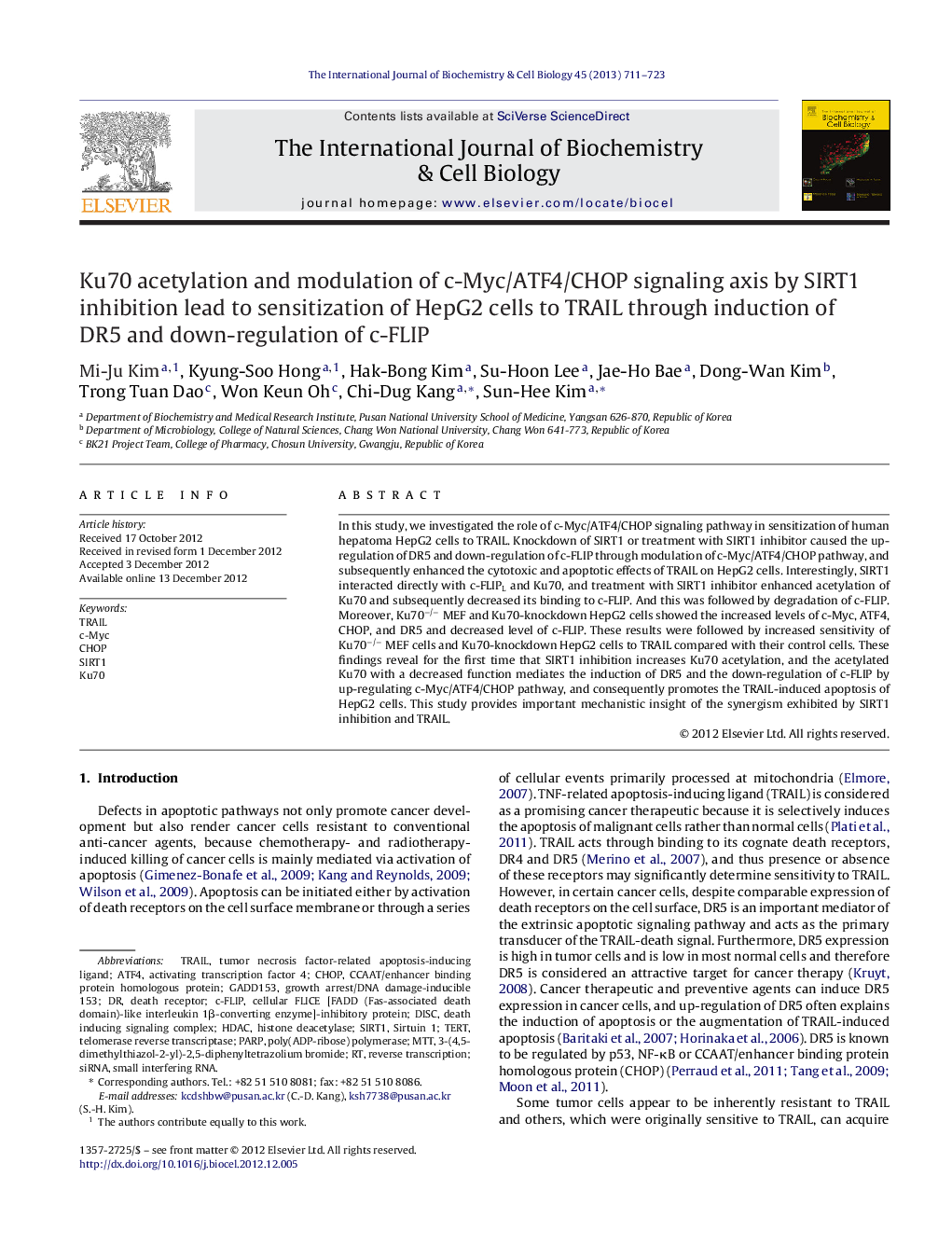| Article ID | Journal | Published Year | Pages | File Type |
|---|---|---|---|---|
| 1983623 | The International Journal of Biochemistry & Cell Biology | 2013 | 13 Pages |
In this study, we investigated the role of c-Myc/ATF4/CHOP signaling pathway in sensitization of human hepatoma HepG2 cells to TRAIL. Knockdown of SIRT1 or treatment with SIRT1 inhibitor caused the up-regulation of DR5 and down-regulation of c-FLIP through modulation of c-Myc/ATF4/CHOP pathway, and subsequently enhanced the cytotoxic and apoptotic effects of TRAIL on HepG2 cells. Interestingly, SIRT1 interacted directly with c-FLIPL and Ku70, and treatment with SIRT1 inhibitor enhanced acetylation of Ku70 and subsequently decreased its binding to c-FLIP. And this was followed by degradation of c-FLIP. Moreover, Ku70−/− MEF and Ku70-knockdown HepG2 cells showed the increased levels of c-Myc, ATF4, CHOP, and DR5 and decreased level of c-FLIP. These results were followed by increased sensitivity of Ku70−/− MEF cells and Ku70-knockdown HepG2 cells to TRAIL compared with their control cells. These findings reveal for the first time that SIRT1 inhibition increases Ku70 acetylation, and the acetylated Ku70 with a decreased function mediates the induction of DR5 and the down-regulation of c-FLIP by up-regulating c-Myc/ATF4/CHOP pathway, and consequently promotes the TRAIL-induced apoptosis of HepG2 cells. This study provides important mechanistic insight of the synergism exhibited by SIRT1 inhibition and TRAIL.
